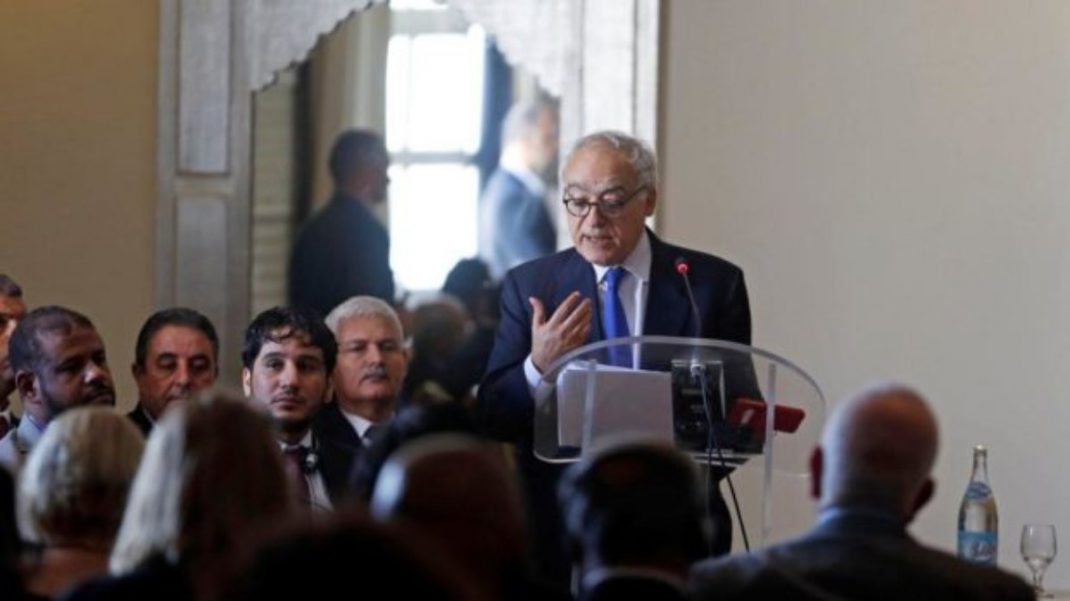By Jamal Jawhar
United Nations special envoy Ghassan Salamé said that Libya is expected to hold parliamentary and presidential elections in 2018. The announcement towed along strong opposition by a number of political parties in the African state.
Most political parties justify their going against with a fear of Libya being torn apart. Previous scenarios led to undesirable divisions.
The international community also found itself divided on the matter, with some backing early elections and other brushing it off with warnings of its consequences.
“Holding elections under such circumstances is counterproductive,” some recounted.
Other political members saw promises on sticking to honest elections made by the head of the High National Elections Commission (HNEC), Emad Al-Sayeh, at the Dec 6 convention attended by Salamé, were a bit shifty and unconvincing.
Doubts such as whether the United Nations is willing to send superintendents to regulate the process across all Libya and whether elections will be restricted to safe areas slow down the prospects of holding the elections.
But mostly, doubts are spurred by the major lack of political consensus, especially on holding elections in the first place.
Some, including head of the Supreme Council of the State Abdel Rahman al-Suhaili, believe that it would be a strike of luck for Libyans “if a general election is held in the country”.
It was noted that the majority of conflicting parties show support for elections, but so long it is tailored to personal conditions and secures its “priorities and gains in any political agreement.”
The Tripoli-based head of the presidential council of the National Accord Government Fayez al-Sarraj, who is also the internationally-recognized Libyan prime minister, announced during his recent visit to the United States that his country is “going to hold elections next year.”
Any realistic real assessment of the situation in Libya will show that current circumstances do not help Elections which could yield a positive outlook, said Suhaili.
“There are many challenges, the most important of which is completing needed amendments for a political agreement, which will open way to provide necessary conditions for constitutional and electoral entitlement,” Suhaili.
Suhaili has repeatedly hinted to his opponents that he will resort to immediate elections held within six months and the forming a mini-technocratic government to run the country.
This comes as the House of Representatives came together to discuss the constitutional declaration, and the means to annex a potential “political agreement”.
Suhaili had brushed off the notion two years ago.
Libyan politicians told Asharq Al-Awsat that the elections were “a real opportunity to salvage the country from the fighting and fragmentation”.
However, they argued that it would be undercutting the importance of having a true “political agreement,” which is still subject to dispute between the committees of the House of Representatives and (the highest state).
Others questioned about the possibility establishing credible elections while arms still speak the loudest in the national arena.
Notwithstanding the lack of consensus, UN envoy Salamé has marched closer to elections each day, leaving behind the disagreements strangling the Skhirat agreement.
Having elections sooner rather than later was confirmed at a meeting in the northwestern city of Misurata at the end of November, with representatives of national bodies, civil society and youth organizations.
“Even if no agreement is reached on the governing branch, the elections will be held in 2018,” the meeting concluded.
Responding to Salamé’s ardent push for elections, Fawzi al-Nuwairi, a member of the House of Representatives for the city of Sorman (west of Tripoli), said that “the idea of elections will not be successful unless it is preceded by practical and tangible steps.
He cited improving security conditions throughout the country.
“We are aware of the value of holding presidential and parliamentary elections, because they will benefit the country,” Nuwairi told Asharq Al-Awsat.
“But the environment needed is not available now,” he added.
“There is no legitimacy for any elections without a referendum on the constitution first,” member of the committee tasked with drafting the constitution Daw al-Mansouri told Asharq Al-Awsat.
“The situation is still obscure. The UN envoy did not clarify on what basis he plans on holding elections, especially in the absence of a law that defines conditions of candidacy, term limits, responsibilities of the president-elect, and the distribution of electoral districts.”
___________




